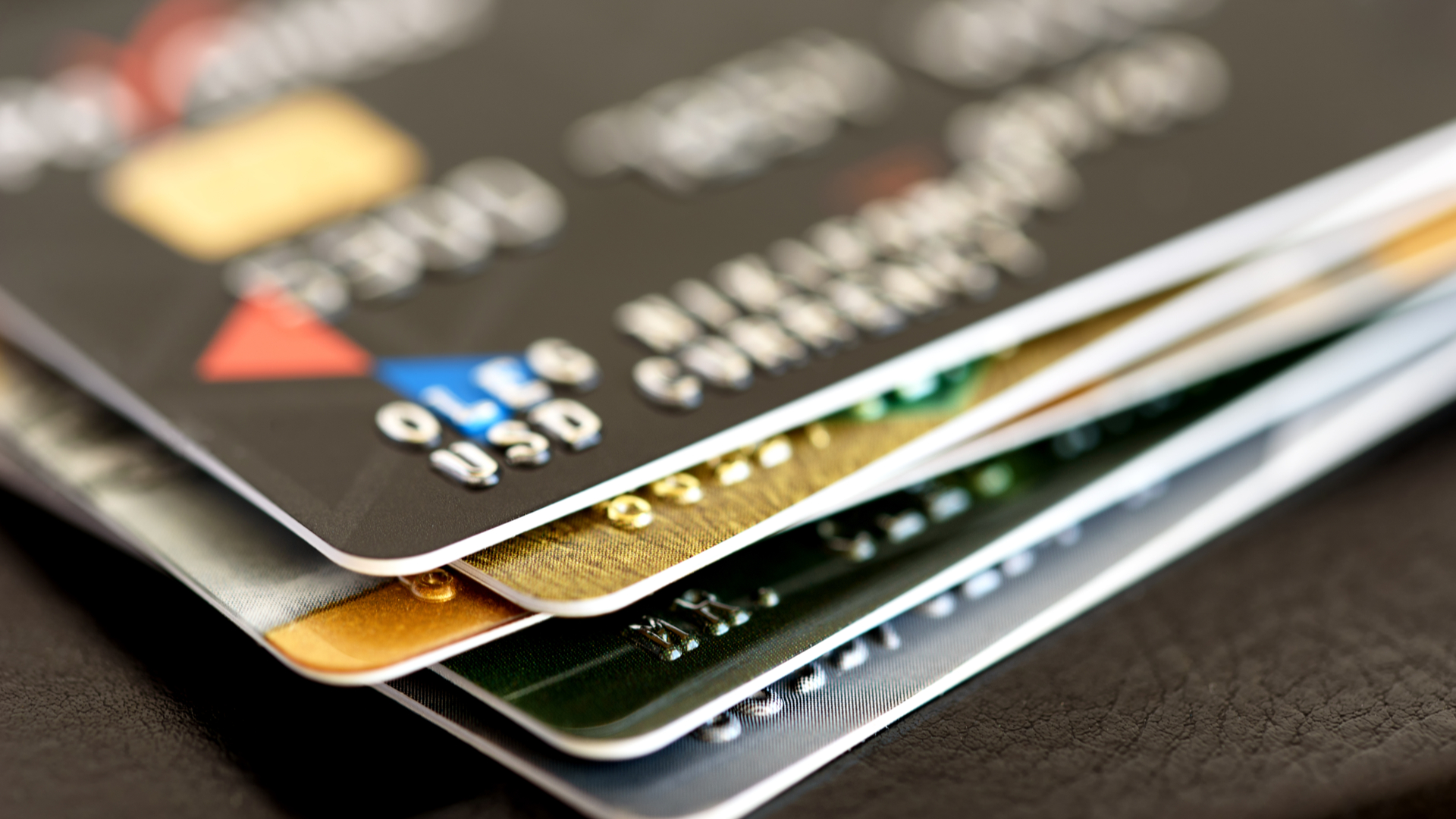What the disruptive rise of fintech startups means for your business
Part 1 of our fintech series examines how the payments industry is evolving in the face of new demand


Payments are the foundation of financial services. Having reliable, secure and flexible payment options for customers and commercial partners is critical for all businesses.
Payments and other financial services are transforming thanks to the rapidly developing fintech sector. These dynamic companies are offering new platforms and services that all businesses can take advantage of.
According to Capgemini's World FinTech Report 2018 the financial services industry is "being reshaped by expanding customer expectations for convenience and personalization - driven by the bar set by Big Tech firms such as GAFA (Google, Apple, Facebook and Amazon) - combined with fintechs meeting these expectations with agility and an improved customer journey".
Speed, convenience, flexibility and security are reshaping the payments landscape, much of which is being driven by new fintech start-ups. Their ability to use open systems, APIs and Distributed Ledger Technology (DLT) is offering consumers new ways to manage and spend their money.
Many of these are not replacements for existing payment platforms, but offer more convenience, agility and embrace the concepts of Open Banking and the Faster Payments initiative to deliver personalised banking and payment options to individuals and businesses using the apps developed across the fintech landscape. Already NatWest, along with Carphone Warehouse, has trialled a payment system that avoids the need to use 3D Secure with payments made with TouchID.
Millennials are typically the most likely to prefer to use alternative fintech services when it comes to basic payment activities. Nearly two-thirds of Millennials (64%) said they prefer to use fintech services than similar services provided by their bank (compared to 43% of Gen X and 40% of Baby Boomers), according to research by Salesforce.
Businesses that need to stay ahead of the payments curve to ensure they always offer their customers the right mix of payment options are seeing those services provided by established service providers, such as their banks, being augmented with other payment systems from the fintech sector.
Get the ITPro daily newsletter
Sign up today and you will receive a free copy of our Future Focus 2025 report - the leading guidance on AI, cybersecurity and other IT challenges as per 700+ senior executives
Disrupting technologies
For businesses, assessing how payments will change as fintech expands should note that, currently, start-ups are mostly targeting financial niches such as money transfer, insurance products and wealth management applications. The incumbent banks and the GAFA group of companies are also developing their digital payment solutions and often partnering with fintech companies.
Which new payment types and channels will become mainstream remains to be seen. Whether consumers turn their backs on GAFA services in favour of the new fintech companies and their payment and other financial solutions is not yet clear. Businesses enhancing their payment options need to assess their customer bases to gauge their reactions.
B2B payments are another aspect of fintech that is rapidly developing. The incumbent banks have the lion's share of this marketplace, however, fintechs are eyeing how they can offer payments across this space, particularly for small businesses.
Fintechs such as CurrencyCloud, ipagoo, iwoca and ezbob are illustrating how small business finance could change. Yet it's still uncertain whether a move away from the established Bacs, CHAPS and VocaLink platforms is on the cards.
"There is a growth in 'account information services providers' - which access customer data under PSD2 and use it to give insights," says Ruth Milligan, head of financial services and payments at Techuk. The Revised Payment Service Directive (PSD2), introduced this year, allows all bank customers to use third-party services to manage their finances and is considered to be a major shift in regulation.
"Also, growth in investment apps, budgeting apps, comparison and advice on mortgages, insurance, loans, also sweep and save apps. However, I am not yet seeing many using the straight payment initiation service under PSD2."
"And there is much activity in cross-border and international payments," she adds, pointing to companies like Revolut and Transferwise which let customers avoid bank transfer fees. "But the biggest area is perhaps the use of crypto-currencies by migrant workers sending money home - crypto is quicker, cheaper and easier for many people."
The payments migration
The main clearing banks have been slow to offer personalised, integrated and agile payment options. This has opened the door to a raft of fintech start-ups that are offering new ways to manage money and make payments, often without the traditional banking infrastructure that are seen by many consumers as out-of-date, insecure and inflexible to today's payment needs.
However, currently, only the main banks have the loyalty needed to ensure a payment system is profitable. The GAFA companies may be able to change this, but would consumers be happy to use the bank of Apple or Amazon? The supermarkets have shown that alternative access to financial products is popular, so a future shift away from the main banks isn't inconceivable.
Moves by companies such as WhatsApp, which is trialling a P2P payment solution in India which has more app users than even the US, and Facebook Messenger, which is launching its own P2P payment system, illustrates how social payments could be a huge player in the near future. Linking consumers' social activity to secure payment systems is clearly a development all businesses need to watch closely.
"The term 'conversational commerce' is emerging, whereby consumers don't want to disrupt conversations to access dedicated banking apps," says Chris Kreinczes, head of insight at consumer behaviour analyst firm Canvas8.
"We've seen the arrival of Facebook Messenger payments in the UK. If we think long-term, in messaging platforms such as these, it's going to be desirable to have more seamless experiences on mobile devices."
And new technologies encompassing IoT (Internet of Things) are also having an impact, as Kate Johnson, payments and fintech partner at international legal practice Osborne Clarke explains.
"The Internet of Things, which is frequently heralded as the driver for future commerce, has become a more realistic proposition post-PSD2," says Johnson. "The development of connected devices creates new points of interaction and opportunities for retailers and participants in the payments ecosystem."
"The IoT will have to overcome some fairly significant barriers in the short term, such as issues around security, data privacy, and payment fraud. However as consumers become more familiar with IoT devices and competitive pressures ease prices, it might not be long before we are all relying on our smart fridges to order our food and initiate payment for it."
For small businesses, in particular, navigating the new payments landscape may seem complex. Fintech news headlines often suggest that the era of traditional banking and payments is over, but, in reality, a partnership with fintech companies to offer new financial services is far more likely.
The turning point
"We are at a turning point for financial services," says Adrian Cannon, a serial entrepreneur in the management consulting sector. "A moment when multiple strands of activity in technology, regulation and people's engagement with technology allow for rapid change.
"Ironically, one of the effects of this change will be that payments become deeply integrated into everything we do and that the legacy brands will become less and less important," adds Cannon. "That creates an opportunity for new players to emerge that will come to dominate the sector as others have done in the last 50 years."
The financial and payments market is shifting towards more innovative services that offer consumers, particularly younger generations, new and integrated payment options often delivered via mobile apps. The bank of Apple may occur, but for now, the fintech companies are illustrating how banking and payments could evolve.
Next week we will look at the technologies supporting this shifting trend and how they're impacting those services fintech companies seek to offer.
Image: Shutterstock
David Howell is a freelance writer, journalist, broadcaster and content creator helping enterprises communicate.
Focussing on business and technology, he has a particular interest in how enterprises are using technology to connect with their customers using AI, VR and mobile innovation.
His work over the past 30 years has appeared in the national press and a diverse range of business and technology publications. You can follow David on LinkedIn.
-
 Bigger salaries, more burnout: Is the CISO role in crisis?
Bigger salaries, more burnout: Is the CISO role in crisis?In-depth CISOs are more stressed than ever before – but why is this and what can be done?
By Kate O'Flaherty Published
-
 Cheap cyber crime kits can be bought on the dark web for less than $25
Cheap cyber crime kits can be bought on the dark web for less than $25News Research from NordVPN shows phishing kits are now widely available on the dark web and via messaging apps like Telegram, and are often selling for less than $25.
By Emma Woollacott Published
-
 Better together
Better togetherWhitepaper Achieve more with Windows 11 and Surface
By ITPro Published
-
 Transforming the enterprise
Transforming the enterpriseWhitepaper With Intel and CDW
By ITPro Published
-
 The top trends in money remittance
The top trends in money remittanceWhitepaper Tackling the key issues shaping the money remittance industry
By ITPro Published
-
 How to empower employees to accelerate emissions reduction
How to empower employees to accelerate emissions reductionin depth With ICT accounting for as much as 3% of global carbon emissions, the same as aviation, the industry needs to increase emissions reduction
By Fleur Doidge Published
-
 Worldwide IT spending to grow 4.3% in 2023, with no significant AI impact
Worldwide IT spending to grow 4.3% in 2023, with no significant AI impactNews Spending patterns have changed as companies take an inward focus
By Rory Bathgate Published
-
 How Kantar revamped its IT infrastructure after being sold off
How Kantar revamped its IT infrastructure after being sold offCase Study Being acquired by a private equity firm meant Kantar couldn’t rely on its parent company’s infrastructure, and was forced to confront its technical shortcomings
By Rene Millman Published
-
 Report: Female tech workers disproportionately affected by industry layoffs
Report: Female tech workers disproportionately affected by industry layoffsNews Layoffs continue to strike companies throughout the tech industry, with data showing females in both the UK and US are bearing the brunt of them more so than males
By Ross Kelly Published
-
 Deutsche Bank wraps up Postbank IT integration after bug-laden migrations
Deutsche Bank wraps up Postbank IT integration after bug-laden migrationsNews The IT merger is expected to generate annual savings of €300 million by 2025
By Daniel Todd Published